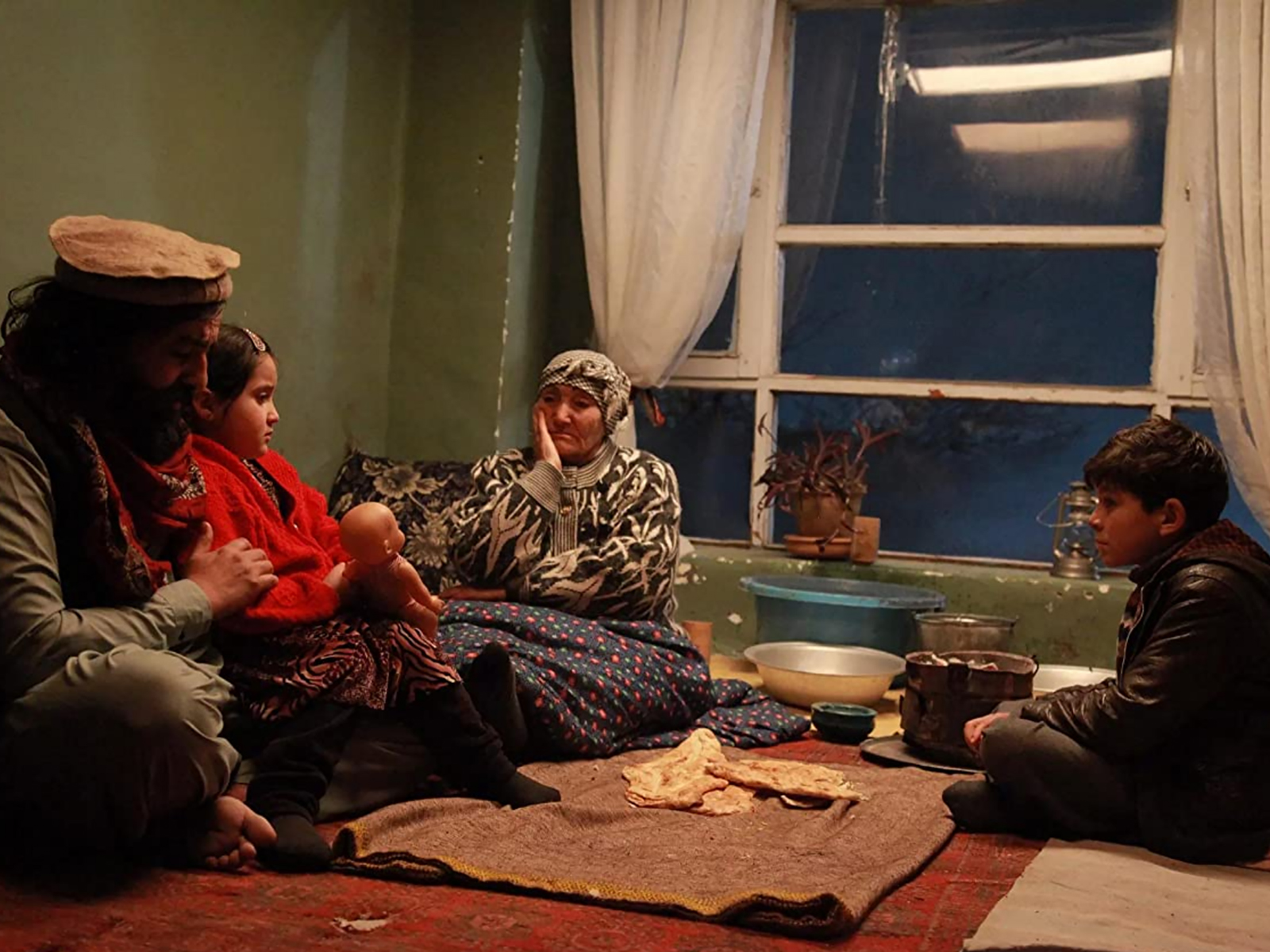
- Golden Globe Awards
When Pomegranates Howl (Afghanistan)
In When Pomegranates Howl, the second feature film from Iranian-Australian Granaz Moussavi, the film’s main character, Hewad (portrayed by Arafat Faiz), is forced to become the breadwinner in the family at the age of nine on the death of his father.
Hewad sells trinkets, snacks, and pomegranates in a heavy wooden cart in the harsh streets of Kabul. The savvy kid, who idolizes Arnold Schwarzenegger, also delivers amulets from a nice old mullah to those who need them.
The boy also faces the challenge of the forced remarriage of his mother to his uncle, her brother-in-law.
When an Australian photojournalist befriends Hewad and starts documenting his life to show images of the children of the war-torn society, the boy is inspired to create an imaginary action film with his friends. Hewad has been dreaming of becoming a rich and popular actor himself so that he can take care of his mother and younger sister and buy his family a beautiful house.
Tragedy strikes, however, while he and his friends are doing their imaginary war games as their audition for their make-believe film. Hewad and his best friend are shot and killed in an airstrike by Australian troops, who mistake the group for Taliban insurgents.
The movie, which was financed with assistance from the Adelaide Film Festival Investment Fund, the South Australian Film Corporation and the Netherlands Embassy Kabul, shows life in Afghanistan’s capital as a never-ending fight for survival, in which children suffer the most.
In an HFPA press conference last September with writer-director-producer Moussavi that took place via Zoom while she was in Melbourne, Australia, Moussavi talked about how she was inspired by true events surrounding an incident in March 2013, when soldiers on a helicopter killed two Afghan boys, mistaking them for insurgents. The film closes with archive footage from Australian TV in which the killing and the compensation to the boys’ families was being discussed by Australian Defense Minister Stephen Smith.
The 47-year-old Tehran-born filmmaker said, “The news was an interview with a defense minister, the very same interview that I used in the film, talking about the mistaken killing of two young boys. What struck me was that these boys didn’t have any background, didn’t have any names.
“And most importantly, the purpose of the interview was not apologetic or reassessing our reasons for going to another country and participating in a war like that, but more about reassuring people, the taxpayers, that the burden this is putting on our army and on our government is more about compensation of hundreds, not even thousands.
“That was quite striking to me, to my heart and mind at the same time. I was hurt. I just couldn’t sit there and watch what was happening. It was more than just a war but more like a strike to my morality.”
Moussavi, who is also a poet who was well-known for her avant-garde poetry in the ‘90s, chose non-actor Faiz, whose wide-eyed innocence is perfect for this heart-tugger, as her main protagonist for her film, and included the city of Kabul as a character in its own right.
She decided to use non-actors, especially when it came to the children’s characters, “to match with the production that was inevitably going to be guerilla. We made sure that my team, both before the camera and behind the camera, were across ethnicities because that is one big pain and issue in Afghanistan – the ethnicity division and mentality throughout the psyche of this nation and the country. That, to me, is a source of a lot of these political conflicts that are going on. I wanted to make sure that I am addressing that.”
She found the children by holding auditions very early on in 2017 when she first went to Afghanistan: at that time, it was still possible to travel East of Afghanistan, around Kabul towards the North and the West. “After a few months, it was not possible to go there. ISIS was being very active. They were in surrounding villages. I traveled to villages that local sources said ISIS was not there.”

